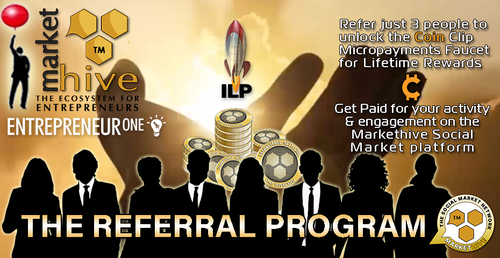


Image Source: Pixabay
What are crypto faucets and how do they work?
By completing simple tasks, users can use a crypto faucet to earn modest coin payouts (similar to the minuscule drops of water trickling from a leaky faucet).
On blockchains like the Ethereum Mainnet, fees represented in the blockchain's cryptocurrency units must be paid for transactions to be performed and recorded. From exchanges, one can purchase Ether (ETH), the native cryptocurrency of the Ethereum blockchain, and pay the transaction costs. However, alternative Ether distribution mechanisms are utilized on test networks like Rinkeby and scientific research blockchains like Bloxberg.
One such method is a faucet, which grants users free cryptocurrency following some predetermined rules. In general, faucets provide a fixed amount of money for a specific time or block. For instance, Bloxberg Blockchain's web-based faucet offers 0.2 ETH.
So, if you are still wondering, does “free crypto” really exist? The answer is yes! A crypto faucet is nothing more than a website that awards you token sums of cryptocurrency in exchange for performing easy tasks like solving quizzes, watching ads or videos, etc.
But, what is the purpose of a crypto faucet? Crypto faucets are designed to provide users with free cryptocurrency to start learning about digital assets and eventually use them. For instance, the low-income unbanked population can access financial services through a blockchain-powered permissionless network.
In this article, you'll discover what crypto faucets are, their purpose, the types of crypto faucets, how they work, and the various risks associated with crypto faucets. Read More
What is Enjin (ENJ) and how does it work?
As an ERC-20 compatible token, Enjin Coin, a cryptocurrency introduced by the Enjin corporation, may be transmitted and received using an Ethereum wallet.
With blockchain-based nonfungible tokens (NFTs) powering the rise of Web3, a number of NFT-based projects are gaining significant importance, as they provide the technological means of assembling important data on blockchains in a visually appealing manner.
Leading among them is Enjin, a world-class blockchain software co-founded by Maxim Blagov and Witek Radomski in 2009. Enjin helps build an entire Enjin ecosystem consisting of products that individuals, businesses, and developers can use to develop, trade, monetize and market NFTs.
Allowing users to manage NFTs and crypto through the Enjin wallet, lets them share NFTs through simple QR codes and provides them access to a dedicated marketplace to trade and collect rare NFTs. All transactions in the Enjin ecosystem are powered by the native Enjin Coin (ENJ) token and the platform offers the functionality of managing all digital assets through a simple mobile app.
It enables entrepreneurs to conceive gaming, art, music, and sports-based NFT projects with the functionality to create custom coins without any coding requirements. The Enjin platform facilitates gas-free transactions for NFTs and ENJ through JumpNet, allowing for a seamless user experience that is made possible by its integration with all of its other products like Enjin Beam, Marketplace, and Wallet. Read More
Aave Integrates with Pocket Network for Dapps Development
Aave announced Tuesday about integration with the distributed network of more than 44,000 nodes on the Pocket Network to enhance decentralized application development.
Following the new integration, the Aave-based DApps can access on-demand blockchain data from Pocket Network.
Aave is an open source and non-custodial DeFi Protocol which enables the creation of money markets. Aave’s native cryptocurrency is called LEND. According to the FCA, Aave’s UK business entity was granted an Electronic Money Institution (EMI) license on July 7.
CEO of Pocket Network, Michael O’Rourke, said, “The goal is to power the next wave of decentralised applications that combine Aave’s best-in-class liquidity market with Pocket’s unrivalled RPC coverage, which now supports 50 blockchains and is well on its way to achieving its goal of 100 blockchains in 2022.”
Pocket Network Inc. is a software startup building a universal, decentralized API protocol for blockchains. Its function is to provide an extensive relay network for API requests from major blockchains. Its cryptoeconomic model can minimize developer costs while delivering value directly to full-node operators.
Pocket provides Remote Procedure Call RPC access to Ethereum, Polygon, and a dozen more blockchain networks. Read More
What’s next for the future of Ethereum? Mihailo Bjelic from Polygon explains
The much-anticipated Merge upgrade has been in the making for over two years.
With the transition to a scalable, energy-light proof-of-stake blockchain at play for Ethereum, many have cast doubts on the popular coin’s future, given the magnitude and complexity of the Merge upgrade. But, among prominent stakeholders, one particular project remains heavily bullish on Ethereum’s future, which is none other than layer-two scaling solution Polygon.
At the annual Ethereum Community Conference in Paris, Cointelegraph’s events manager, Maria A., spoke to Polygon’s vice president of growth, Mihailo Bjelic, regarding the topic. Here’s what Bjelic had to say regarding the Merge:
"This is an upgrade on a live network that has millions of users, billions in capital, and tens of thousands of applications. It is never easy, but the Merge has been in the works for over two years. All the testnets have been successful, the code has been audited, etc., so I think we are more than ready for the upgrade."
Bjelic then explained that it’s more than likely that Ethereum will endure the bear market and recover: “Two reasons. First, it's the home of innovation and development. It's where all the developers are, it's where 90%-plus of activity is happening. Projects focused on the money will disappear, but the true developers will stay.” He continued: “The second reason is that Ethereum is the most secure, decentralized, and programmable blockchain in the world, by far. It is perfectly positioned to be the center of this multichain web that we're trying to build to potentially reach to billions of users.” Read More

REFER THREE TO MARKETHIVE TO RECEIVE BONUS AIRDROPS AND ACTIVATE MICROPAYMENTS
As Markethive continues to gain traction with new members joining daily, Markethive is steadfast and in preparation to take a large share of the new Market Network that is the next generation following the social media craze of Web 2.0. Markethive is a Social Market Broadcasting Network. It sounds like a mouthful, and it is!
Markethive is an all-encompassing platform that has integrated;
As Markethive’s foundation is Blockchain-driven, it has its consumer coin, currently named Markethive Coin (MHV), but soon to be renamed Hivecoin (HVC - the Ticker Symbol). It is fully integrated into the system and has created an Ecosystem for all Markethive members, free and upgraded Entrepreneurs.
So Markethive has established its niche as the only Social Market Broadcasting Network with an infinity Airdrop and a system that rewards the users for engaging on the platform and learning how to use it with ongoing, real-time micropayments, otherwise known as a Faucet.
Markethive has the combined power of Facebook, LinkedIn, Marketo, and Amazon, with the real advantage of deriving income within the Markethive system while promoting your business and enjoying the social media interface. Read More
Consensys to Tokenize Smart Contract and Blockchain Audits via TURN Token Launch
The Ethereum-centric and decentralized protocols software firm Consensys has announced the launch of TURN token, or “Time-Unit Representative NFTs.” Consensys details that TURN tokens will create a new market for tokenized security auditing via Consensys Diligence, the firm’s smart contract audit service.
Consensys Diligence to Launch TURN Tokens in Mid-August:
From August 15th to the 19th, Consensys disclosed a token sale will take place that will feature the company’s TURN token, which stands for “Time-Unit Representative NFTs.” The company’s smart contract audit service Consensys Diligence essentially will be tokenized and have its own price discovery phase via the open market.
“TURN is the first token of its kind to quantify the immense value of smart contract and blockchain security audits,” Gonçalo Sá, the co-founder of Diligence said in a statement on Tuesday. “With the TURN token, we’re tokenizing labor and helping deliver on the vision for a more secure Web3 that advances the free market economy on the blockchain.” Read More
Ireland Greenlights Gemini to Provide Crypto Services in the Country
Gemini became the first crypto exchange authorized to operate as a Virtual Asset Service Provider (VASP) in Ireland.
The Central Bank of Ireland granted regulatory approval to the cryptocurrency exchange Gemini to offer digital asset services in the local market. Moreover, the company became the first to be registered as a Virtual Asset Service Provider (VASP) in the country.
The trading venue run by billionaire twins Cameron and Tyler Winklevoss keeps expanding its multinational presence. In a recent tweet, it disclosed that the latest destination where it obtained a green light to operate as a Virtual Asset Service Provider is Ireland.
It is worth noting that the VASP registration in Ireland was introduced last year, requiring firms to abide by anti-money laundering laws and counter the financing of terrorism.
Gillian Lynch – Gemini’s Head of Ireland and Europe – said that settling in the nation is a “huge step” considering the company’s ambitions and the strict domestic requirements.
“We believe that regulation is vital to protect investors and offer a safe experience with digital assets. Dublin is Gemini’s European headquarters, and we are seeing huge interest in crypto here. This registration helps customers have confidence in Gemini as a secure and transparent provider,” she added. Read More
How Blockchain MMORPG Cradles and its Time-Lapsing Virtual World Plans to Shake-Up Online Gaming
Blockchain-based technologies, as expressed by cryptocurrencies and other forms of digital assets like non-fungible tokens (NFTs), are beginning to make their presence felt in many different industries. While appearing little different on the surface from other types of digital money, the excitement crypto and NFTs have generated centers around their enabling features in digital transactions, in particular with ownership management.
NFTs, in their own right, have attracted a lot of interest over the last two years owing to the way they have allowed for the secure and authenticatable transfer of physical items via the blockchain. Stripped down, NFTs are simply tokens that represent unique assets.
In the case of art and collectibles, this proved to be a highly useful feature that let people create NFTs representing unique and rare pieces of art and culture. If you owned an NFT, you owned the creative rights to a piece of art – verifiable by anyone just by cross-checking the NFT data on a public ledger.
Yet NFTs in this form have barely scratched the surface of what’s possible, particularly when dealing with industries where non-fungibility and fungibility factors are crucial aspects. Read More
Blockchain has the biggest potential since the internet: Saxo Bank founder
Saxo Bank founder Lars Seier Christensen told Cointelegraph that in the coming years, new business models will be invented because of blockchain.
While the cryptocurrency prices are calm and investor interests remain low, blockchain’s potential to transform and disrupt industries keeps attracting those eager to build regardless of digital asset prices.
Lars Seier Christensen, founder of investment banking firm Saxo Bank, told Cointelegraph that blockchain’s inherent features made him decide to jump into the space and run a blockchain project called Concordium. He explained that:
“I am fascinated with the many ways blockchain can be used in the real world to improve data security, prove ownership, and add efficiency, traceability, and provenance to many processes.”
Christensen said that through tech, new business models would be invented in the near future. However, the executive believes that the investment scene in crypto is very immature compared to traditional finance, and there are many projects that will not make it. Despite this, Christensen also pointed out that there will be some who will rise from the fog. He said:
“The projects that consist of hot air and hype will fail, but out of the dust will rise great projects and companies for the future economy. So, it is a healthy shake-out that will focus investors on tech and science quality much more in the coming years.” Read More
Disclaimer: These articles are provided for informational purposes only. They are not offered or intended to be used as legal, tax, investment, financial, or any other advice.